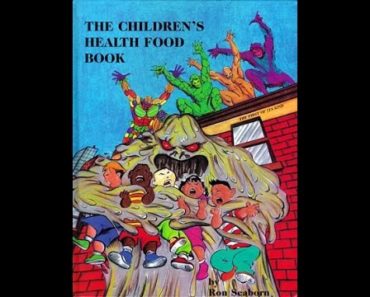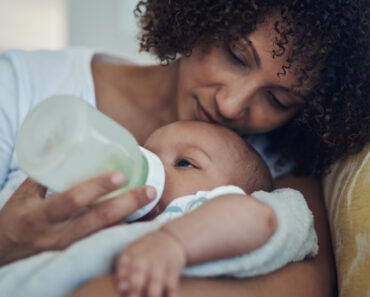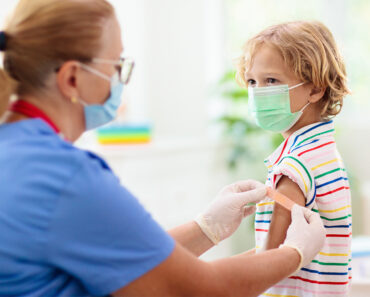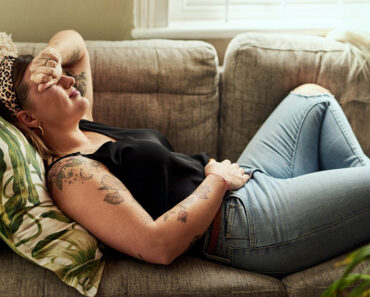Before giving your kid that dose of antibiotics or cold medicine, make sure you read up on these common medicine mistakes.
Cough, cold and flu season is in full swing—it’s that time of year when medication errors are most likely to occur. Doling out liquid medication is especially tricky. In fact, researchers found that more than 80 percent of parents made at least one dosing error measuring out liquid medication for their kids in a study published in the October 2016 journal Pediatrics. And a previous study found that the younger the child, the more likely a medication mistake is to be made. Though the vast majority (94 percent) of these mistakes didn’t require medical attention, some lead to serious complications and even death.
Most medication errors happen with liquid pain relievers meant to reduce fever (likely because they’re more commonly used with little kids, but also because they can be tricky to measure out), such as acetaminophen and ibuprofen, followed by antibiotic and allergy meds. The biggest jump in medication errors in kids has been seen with dietary supplements and homeopathic and herbal treatments.
Even the most conscientious parents make mistakes, but there are ways to cut the risk. Here are the most common medication errors and tips to help keep your children safe.
1. Giving the wrong dose
Always follow the dosage recommended by your doctor or pharmacist or as written on the package. Most children’s medication doses are based on the child’s body weight, which is the most accurate way to dose medication. (Over-the-counter medication doses sometimes provide dosing by age ranges, which are based only on estimates of weight by age.)
Liquids often come with dosing instructions in millilitres (mL) as well as in teaspoon or tablespoon measurements. While you may prefer the familiarity of a teaspoon or tablespoon, using kitchen cutlery can lead to errors because they vary so much in size, and baking teaspoons can be awkward to use. Instead, measure kids’ liquid medicines in millilitres (mL) with an easy-to-use oral syringe or a medicine cup with clearly marked millilitre lines for precise doses. Syringes and cups often come with prescription liquid medications but are also available in drug stores. (Some pharmacists will give you one for free if you ask.)
2. Repeating a dose
Accidentally repeating a dose is a common medication error, particularly with babies, who can’t tell you that they’ve already been given their medicine. Keep track of your child’s dosing schedule with a medication log on your smartphone, a programmable timer app, a printable medication log or even a sticker on the medicine bottle. Make sure that all of your kid’s caregivers use the same log and are communicating about what doses were given when. If you miss a dose, do not double up to make up for the missed dose—talk to your doctor or pharmacist.
3. Giving doses too close together
Follow the dosing schedule from your doctor, pharmacist or the package instructions. Don’t push doses closer together or exceed the maximum amount of doses per day instructed on the label. Alternating between two medications (as is commonly done to bring down a fever) isn’t recommended by the Canadian Paediatric Society, as it can lead to over-dosing errors.
4. Confusing units of measurement
What’s written on your original prescription and the label on the medicine you get from your pharmacist may not necessarily match—and that’s OK. A prescription is a communication between the doctor and pharmacist, written by the MD in ‘medical-ese,’ then translated by the pharmacist into plain language on the label. Medications come in a wide variety of units, including milligrams (pills), millilitres (liquid), micrograms (inhalers/puffers) and more—a pharmacist may have to convert one unit to another (i.e., solid to liquid) to prepare the prescription. Don’t get hung up on what the prescription from your doctor says—it’s most important to talk to your pharmacist to make sure you understand the label.
5. Giving the wrong medication
Always read the label for instructions and expiry date to make sure it’s right for your kid’s symptoms and age and that it has not expired. Do not remove labels from medication bottles, put medications in other containers or bags, or mix medications together. Always return pill packets to their original container with instructions and dosing information. Make a habit of periodically checking your medicine cabinet for expired meds and bring them to your drug store to be disposed of. Expiry dates are not always listed on vials and bottles, so check with your pharmacist if you’re unsure. The concern is both reduced efficacy and safety, as the drug may lose its desired effect or change in some way over time.
6. Giving medicine in the wrong spot
Medicines are pretty commonly given orally, but they can also be given in the eyes or ears, up the nose, on the skin, etc. Always read the label to ensure you’re putting medicine where it’s meant to go.
Medicine safety tips
- Keep a list of all your child’s current medications. If your child is taking one medication, always check with your doctor or pharmacist before starting another (whether it is prescription, over-the-counter, nutritional supplement or herbal medicine).
- Keep all medication (including over-the-counter, prescription, creams, vitamins or natural/homeopathic) up high, out of reach and out of sight of children in a locked cabinet or tackle box. Put medications away after every use, even if you plan to use it again soon, and ensure the child-safety lock is secure.
- Always tell your doctor and pharmacist about any drug/medication allergies or other allergies.
- Make sure to store medications as instructed on the label and by your pharmacist.
- Talk to your kids about medication and never refer to it as “candy.”
- Ask house guests to keep bags, purses, cosmetic cases and coats containing meds up high, out of reach and out of sight of kids.
- If your child has taken too much of a medication, call your local poison centre immediately. Program the local poison centre number into your phone and post it somewhere visible for caregivers.
Joelene Huber is a paediatrician and assistant professor of paediatrics at the University of Toronto and is affiliated with St. Michael’s Hospital and the Hospital for Sick Children, specializing in development and autism spectrum disorders. She appears regularly on TV and is a mom to two small children. Follow her on Twitter at @DrJoeleneHuber.
Special thanks to James Tjon, pharmacist at the Hospital for Sick Children.

































